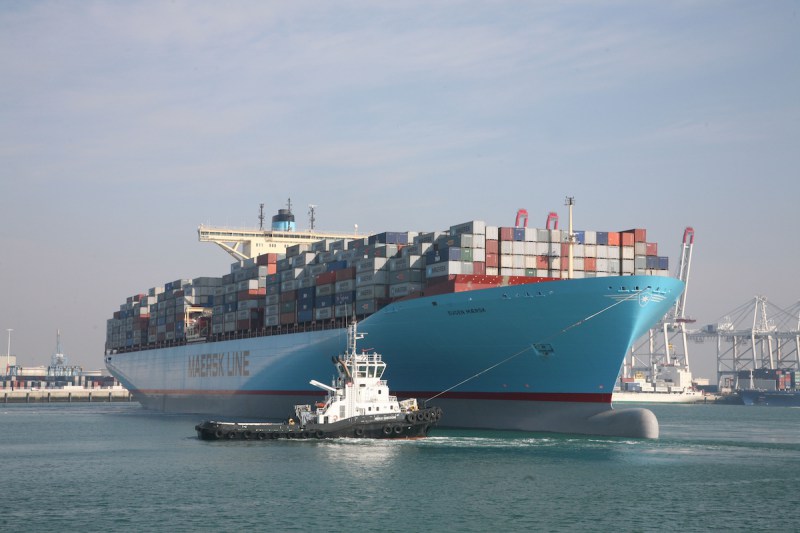search the site
Shipping Giant Shows Why We’re in Deep Water on Deflation
By Chris Bryant

(Bloomberg Gadfly) — It’s a sign of stunted investor expectations when an 89 per cent slide in quarterly profit triggers a 3 percent share price jump.
In fairness, AP Moeller Maersk, the Danish conglomerate that also reported a 16 percent decline in revenue on Friday, is doing better than many rivals in oil, shipping and logistics. At least it made a profit. Even so, a 2 percent annualized return on invested capital during the most recent three-month period was just one-fifth of its target.
By ousting CEO Nils Andersen in June and replacing him with Soren Skou, head of container shipping, the company has raised expectations of a swift turnaround. The new man has shown a relish for cost-cutting, though such zeal won’t be enough by itself and highlights a double-bind in which many industrial groups find themselves: they’re tightening belts furiously, but suffering as customers do the same.
Skou declined to reveal any initial findings of his strategy review on Friday — an update is due by the end of September. It seems probable he’ll tinker with the company’s structure. A separation or sale of the oil unit might help moderate a conglomerate discount and create value.
But arguably that’s the easy bit. Maersk has plenty of cash already: its liquidity reserve stands at $11.5 billion. What the company needs badly is a plan to deploy that capital in a manner that earns a decent return. That’s going to prove much more difficult.
Global demand is weak and Maersk’s industries are beset by overcapacity, which creates a deflationary price environment. Meanwhile, collapsing interest rates keep alive the over-leveraged shipping and oil companies whose bankruptcy would otherwise ease the way for fresh growth elsewhere.
Faced with this environment, Maersk’s only real option has been to slash spending. Under Skou’s watch, the container shipping business has already cut unit costs by almost 40 percent since early 2012. Cheaper fuel helps, but there’s also better capacity utilization and lower admin costs.
Similarly, the oil business has reduced operating expenses (excluding exploration costs) by a quarter over the past year, meaning the company expects to break even with oil prices at $40-45 a barrel, roughly where it was trading Friday.
But therein lies the rub. Maersk’s efficiency drive has helped it claim a bit more market share: container demand grew 2 percent in the second quarter whereas Maersk’s volumes increased at more than three times that rate. However, that doesn’t by itself stimulate the necessary levels of confidence and sustained international demand.
On the contrary, lower spending merely adds to the pernicious deflationary spiral at the heart of a fragile global economy. Ultimately, that’s bad for a conglomerate like Maersk too because the drought imports price deflation into other parts of its empire, such as drilling and freight-handling terminals.
Of course, the recent wave of alliances and M&A in container shipping may eventually spur capacity rationalization and thereby support prices. But for now that excess — caused by ordering far too many ships — will continue to be a burden (even if prices have recovered a little).
Ultimately, cutting gets you only so far. As with the economy, what Maersk really needs is growth. Over to you, Skou.
This column does not necessarily reflect the opinion of Bloomberg LP and its owners.


















